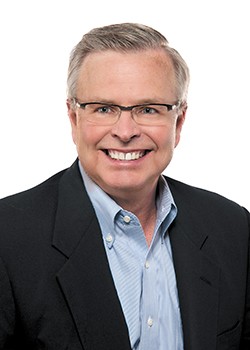Theres no too late in planning for retirement (OPINION)
by October 10, 2016 12:00 am 229 views

Since President Franklin Roosevelt signed the Social Security Act in 1935, Americans have depended on Social Security to help fund their retirement and ensure their golden years are not spent in poverty and want.
Over the years, the rising cost of living and other factors have made it apparent that we cannot depend only upon Social Security for retirement. According to the Social Security Administration, the maximum 2016 benefit at full retirement age — which varies depending on the year you were born — would be $2,639, even less if you take benefits at age 62. That’s the maximum. Many people’s benefits are well below that amount.
The best way to ensure a stable retirement is to supplement your Social Security by saving part of your earnings throughout your working career. The earlier you start saving, the more money you will have to help make your retirement years as worry-free as possible.
But what if you haven’t started saving for your retirement yet? When is too late to start?
There is no “too late” to start saving. Every little bit helps. But there are some different approaches to your retirement plan based on when you do get started. Here are the best bits of advice I can think of for anyone worried they have left retirement planning until “too late.”
In Your 30s
Start saving now if you haven’t done so already. Or, start earmarking a percentage of your general savings as “retirement” and seek a financial planner who can help you make the most of it.
It is easy to get bogged down with buying a house, car, starting your family or establishing your career. Saving for something many consider decades away is easy to push to the back of the line of demands on your paycheck.
But try to make saving for your retirement a priority. Start putting away enough that you can get the maximum of your employer’s match if you participate in a 401(k) through your work. In your 30s, you have time to let compounding do its magic. If you are 35 years old and saved $990 a month at a 6 percent return, you’d have $1 million when you turned 65. If you wait until you are 50 years old, you would have to save $3,420 a month to have the same amount.
Believe me, getting started is the hardest part. If you can enroll in a direct deposit program or a payroll deductible program, the rest is easier to manage.
In Your 40s
Just like the advice for those in their thirties, start saving now. The biggest difference is that the amount does need to be a little bit more than just the minimum match amount.
Yes, there are more demands on your money now. You have seriously started to consider your children’s education funds, maybe you just moved into a bigger house, and you are planning that big family vacation that comes with a hefty price tag. But your career is probably stabilizing, and you are near the halfway point of your working life. Now is the time to get serious about saving.
In Your 50s
This is the seventh-inning stretch, things are serious now, and it’s time to get going. In 401(k) programs there are “catch-up provisions” that will allow you to put more money into your retirement account above the legal yearly limit without penalty. Take advantage of this age related advantage; it is one of the few things going for you at this stage. Check with your employer or financial planner to learn more about this option.
If you are still putting aside large amounts of money for your children’s educational funds, consider switching that amount over to your retirement account. It sounds a bit heartless; I know. We all want to give our children the gift of an education without big payments due just as they are getting started in life. But they will have many opportunities to pay that loan off in the future.
You only have one shot at saving for your retirement. Remove the specter of their having to worry about you. Your financial stability in retirement can be a gift to your children, as well.
Steve Burkhead is a regional manager for Arvest Wealth Management. He can be contacted via email at [email protected].
